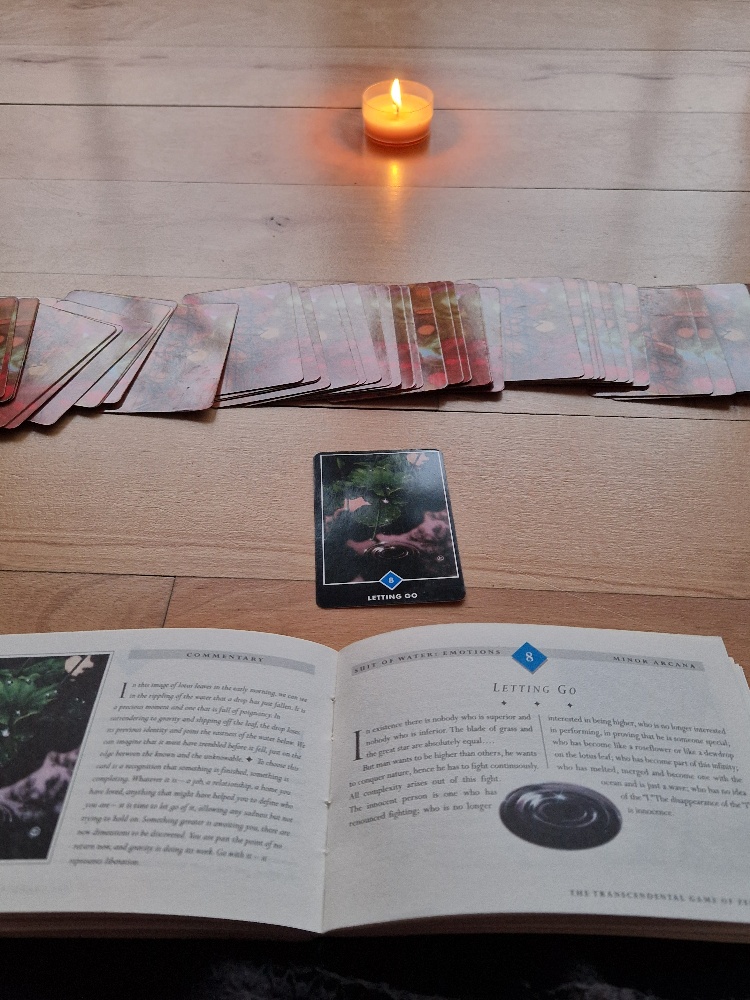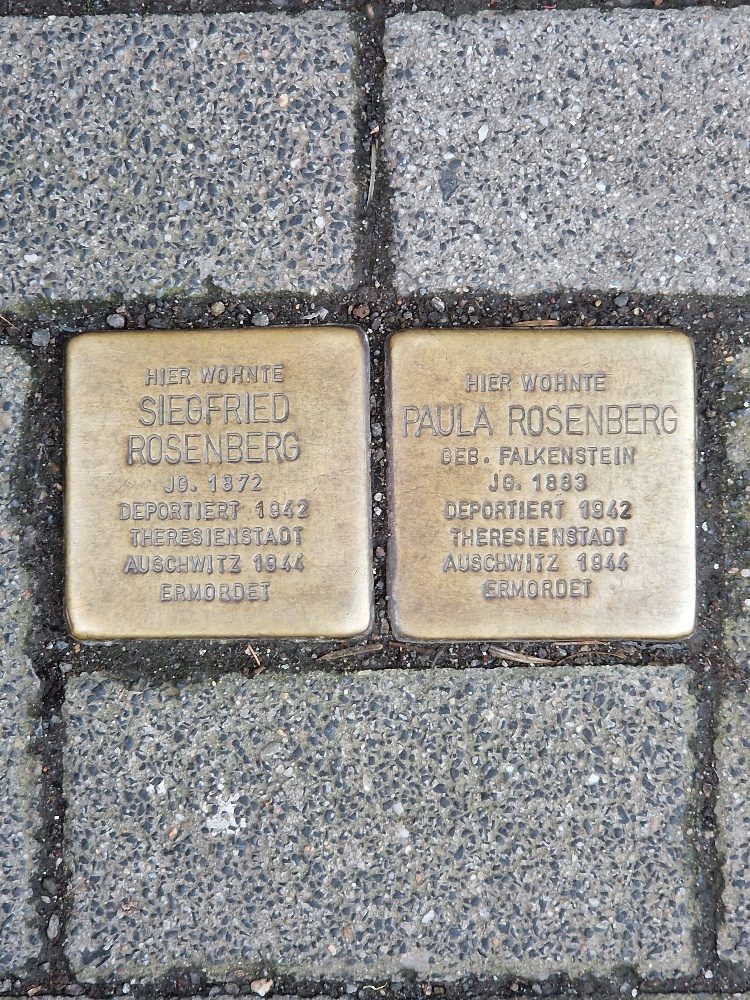Doubt is a pain too lonely to know that faith is his twin brother.
Khalil Gibran
Doubt is not the opposite of faith; it is one element of faith.
Paul Tillich
Doubt in my tradition is something that is very helpful. Because of doubt, you can thirst more and you will get a higher kind of proof.
Thich Nhat Hanh
I know beyond a shadow of a doubt that there is no death the way we understood it. The body dies, but not the soul.
Elisabeth Kubler-Ross
Some weeks ago, my brother recommended a book by the contemporary Yoga practitioner and teacher, Stephen Cope, – Senior Scholar-in-Residence and Ambassador for the Kripalu Centre for Yoga and Health, in Stockbridge, Massachusetts. In this wonderful book, entitled: `The Great Work of Your Life´, Cope explores the concept of dharma (calling, vocation) using, as his framework, the 2,000-year-old treatise on yoga called the Bhagavad Gita and highlighting how the lives of modern and contemporary artists, scientists, and social innovators demonstrate the principles laid out therein.
The Gita is the story of the warrior Arjuna and his divine mentor Krishna. Arjuna, despite his reputation as a brave and invincible warrior, is, like the rest of us, full of doubts and fears. As a major battle looms, these paralyse him. As a result, he throws himself on the floor of his chariot and refuses to fight.
As the story unfolds, Krishna prepares Arjuna for knowledge, imparting it gently yet firmly in proportion to the preparation. This process reminds me of Wayne Dyer’s injunction: `Change the way you look at things, and the things you look at change´.
The four major pillars (as Cope calls them) in the teaching of Krishna about dharma are as follows:
- Look to your dharma
- Do it full out
- Let go of the fruits, and
- Turn it over to God
In this piece, I wish to focus on the role of doubt in both Arjuna’s story, and mine. Not far into the dialogue Krishna tells Arjuna that he cannot act `properly´ (i.e. , in line with his dharma) because he does not know himself. He has forgotten who he really is.
This happens to us when we succumb to doubt. I find it profound that the German verb for doubting is `zweifeln´. The root of this verb, which has been in use for well over 800 years, is the word `zwei´, i. e. the number two. So, the meaning is to `sunder´ or `separate´. Just as interesting is that, unlike most German verbs, there is no opposite form (these are usually formed using the prefixes such as ver- or ent-) so there is no term for `un-sunder´. In fact, `verzweifeln´ in German is translated as `to despair´.
My attention was drawn to this linguistic nugget by one of my first spiritual advisors after my emigration to Germany. Rolf Grigat, who with his wife Sarah, ran a lay monastery in Bavaria where I began to learn zen meditation, asked me one time: `Patrick, when you fall prey to doubt (zweifeln), what exactly is sundered (entzweit)? This profound question has been very helpful to me in the intervening decades and is still equally relevant today as the day it was first posed.
Incidentally, the etymology of `zwei´ crossed over to the English language word twig (Zweig). Twigs form where branches separate.
A related term I recently came across is `hyper-independence´. It was used to describe a typical trauma response along the lines of: `I need to do everything myself. In fact, because no one and nothing can be trusted, I must do everything myself.´
This stance is no stranger to me. I emerged from childhood with it firmly in place, and it became steadily reinforced through almost three decades of substance addiction, to the point that I no longer even trusted myself. (This is bound to happen after several hundred blackouts, each ending in remorse and the certitude that `I will never do that again,´ only to be soon brushed aside and up-ended by the next binge, despite robust levels of self will).
Joseph Campbell wrote widely on this topic of doubt and remembering. `What am I? Am I the bulb that carries the light or am I the light of which the bulb is a vehicle?´ When we confuse these two, we are headed for all kinds of trouble. Campbell continues: `If the body is a light bulb, and it burns out, does that mean there’s no more electricity? The source of energy remains. We can discard the body and go on. We are the source.´
When, through despair, I finally overcame my hyper-independence and sought help in the rooms of AA, the folks there told me that, as long as the only fuel available to me was `self´ (ego), there was no hope of recovery; that only when I tapped into the power of `Self´ (Higher Power) could I escape bondage.
The Big Book of AA, like the Bhagavad Gita, contains the instructions for `good living´, i.e., a life lived in alignment with our highest calling. In addition to finding out which activities really light up body and soul, therefore, another part of the process of recovery is to `remember´ who I really am. By shining the light on our doubt as we work through the Twelve Steps, we get the opportunity to convert it into the fuel of recovery and healing. This embracing and transformation of doubt is what Arjuna succeeds in grasping and developing as the teachings of the Gita unfold.
A further, modern, modality which teaches us the same lessons, in as far as we are open to receiving them, is the Positive Intelligence (PQ) Mental Fitness Programme being rolled out by Shirzad Chamine and his team at the PQ Institute in San Francisco. This programme of transformation is made up of 20% insight and 80% practice.
According to PQ, until we have mastered Mental Fitness, we really are driving with the hand brake on. When we are under pressure, our Saboteurs (nine in all, which, together with the universal Master Saboteur – Judge) repeatedly take us hostage, in thought and action. Like Arjuna, we lie, immobilised, on the floor of our chariot.
These Saboteurs, which reside in the left cerebral hemisphere (Saboteur Brain) are Avoider, Controller, Hyper-Achiever, Hyper-Rational, Hyper-Vigilant, Pleaser, Restless, Stickler, and Victim. Each of us has a very personal combination, an individual team line-up or constellation of saboteurs, variously developed in terms of their respective strengths. This free Saboteur Assessment will provide you an overview of your own saboteur configuration.
They all keep us in check with lies, such as the Controller telling us: `Either I’m in control or I’m out of control´. As long as we are unconsciously directed by the Saboteurs, do not learn to see through these lies, fail to identify, intercept, and take the wind out of their sails, we will never come close to realizing our true potential.
The right cerebral hemisphere is the seat of our Sage Brain. In order to fully activate and manifest our positive potential, we must act with empathy for ourselves and others. This is important because, if we begin to judge ourselves for having the destructive thought patterns in the first place, we slip even further into the tight grip or our Saboteurs.
With practice, difficult situations can be approached with wonder, openness, and curiosity, bringing the willingness to tread new ground, develop innovative solutions and tune in to our intuition and inner wisdom. We must learn to listen to it and, thereupon, learn to act fearlessly, with clarity and decisiveness.
Empathise, Explore, Innovate, Navigate and Activate are our so-called Sage Powers. Sage is our true essence. This is what I had forgotten early in life. Self actualisation, recovery, mental fitness, – whatever label you like to give to the process, – is the process of remembering who we truly are.
The Sage Perspective, from which we learn to think and act, states that every situation, no matter how `bad´ it may appear, contains a gift and opportunity. One of my favourite PQ exercises is taking out the childhood photograph, contemplating the true essence expressed in the radiance of the child. Then to remember, – and experience, – that, unsullied by all the layers of dust, grime, and paint which have accumulated around it over the years, this essence still radiates immaculately, iridescent for all time.
When I find my self doubting, a brief investigation invariably shows that my fuel is being drawn from the fear tank, the product of my Saboteurs. The challenge at that point is to switch tanks, to the loving fuel of the Sage.
This brings us to the third component of PQ Mental Fitness; our capacity to quickly switch from Saboteur to Sage. This requires training of the Mind Command Muscle. We train this muscle by means of a broad array of brief kinaesthetic exercises spread out throughout each day, every day. With each exercise we are re-wiring the neural pathways of the brain.
After 6 to 8 weeks of daily practice, we already experience the first tangible benefits of this training, just as we would see and feel changes in our body after a period of consistent, continuous working out in the gym. All our self-generated distress in the forms of anxiety, disappointment, stress, anger, shame, guilt – all the unpleasant stuff that makes up our suffering – begins to subside. We begin to get our first taste of ease and flow.
The PQ Foundation Module comprises eight weeks of App-based continuous daily practice (30 minutes spread out over each day), weekly video tutorials, and 60-minute coaching sessions (in person or online) with your PQ Coach each week. The integrated PQ App is a powerful tool which helps us maintain consistent practice over time.
Back to Arjuna. When he remembers who he truly is, he knows that, while he is not the architect of the Universe, he is a builder with the responsibility of following the plans laid out before him, his unique dharma. Now he simply becomes the channel for the higher good, detached from outcomes, fulfilled in the flow.
This is how Stephen Cope paraphrases Krishna’s message to Arjuna on this point: `Your dharma is your way of staying connected with your True Nature. It is the particular way in which you can devote your life to the welfare of all beings. Your dharma is your way of expressing the Truth. Your dharma is the one place where you can penetrate the fleeting world of form. Where you can live as I live, fully connected with the whole world of mind and matter. Where you can live in the full knowledge that you are not the Doer, but only a vehicle for the great Doer.´
The Gita, like the Twelve Steps and PQ, is another great example of `Transformation Coaching, from the inside out´.








